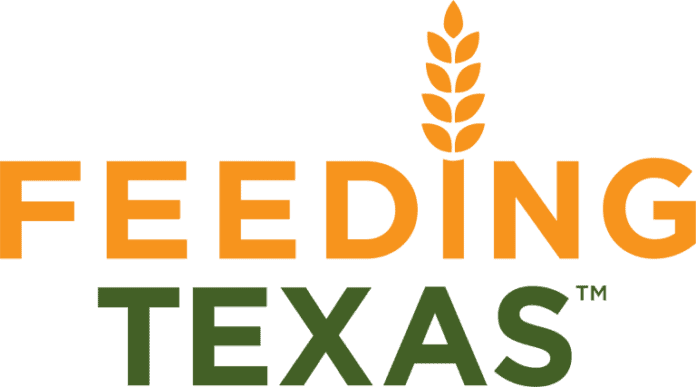The Senate-passed budget reconciliation bill threatens to dismantle the nation’s most effective anti-hunger program and take food off the tables of vulnerable Texans.
TEXAS – Yesterday, the U.S. Senate passed its version of the budget reconciliation bill, and while it differs in some respects from the House proposal, it still represents the most sweeping rollback of the Supplemental Nutrition Assistance Program (SNAP) in U.S. history. The bill would slash an estimated $186 billion from SNAP and fundamentally alter the program’s structure by shifting billions in costs to states like Texas.
Since the modern-day inception of SNAP (or “Food Stamps,” as it was formerly known) 50 years ago, the federal government has always paid 100% of the cost of benefits, guaranteeing that Americans would have access to critical food assistance during times of individual crisis, economic downturns, and natural disaster no matter where they live.
“If enacted, this bill would represent the largest rollback of food assistance in U.S. history,” said Celia Cole, CEO of Feeding Texas, the state association of food banks. “The consequences would be profound and devastating. Millions of Americans—including children, seniors, veterans, and working families—could go hungry. In addition to the significant and undue harm for vulnerable Americans, the bill also deals a blow to farmers, grocers, and our state and local economies.”
The Senate bill would require states with SNAP error rates above 6% to pay between 5% and 15% of food benefit costs. It would also increase the state share of administrative costs from 50% to 75%. For Texas, this would mean an additional $89.5 million per year in administrative costs starting in FY2026, and $716 million per year in food benefits beginning in FY2028, assuming the state maintains its current error rates. These are new costs that Texas has never had to bear before.
Because Texas must balance its budget annually, these new obligations would force lawmakers to either raise new revenue; divert revenue from other essential services like education, healthcare, or public safety; or make the painful decision to reduce SNAP benefits for food insecure Texans.
“SNAP is a lifeline for millions of Texans, especially during times of crisis,” Cole said. “The program works because it’s federally funded and responsive to fluctuations in the economy. Offloading benefit costs to states would undermine SNAP’s ability to respond to economic downturns and natural disasters—precisely when families need help the most, and state coffers are most depleted.”
Beyond the cost shift, the bill includes several policy changes that would directly reduce access to food assistance:
- Expanded Work Requirements: The bill would subject more seniors (up to age 65) and parents (with children as young as 14) to a harsh three-month time limit unless they can document 20 hours of work per week. It also eliminates exemptions for veterans, people experiencing homelessness, and former foster youth from the time limit.
- Elimination of SNAP-Ed: The bill would fully eliminate SNAP-Ed, an evidence-based program that helps state agencies, food banks, and other local organizations provide nutrition education to thousands of Texas families.
- Limits to the Thrifty Food Plan: By restricting future updates to the Thrifty Food Plan—the formula used to calculate SNAP benefits—the bill would depress benefit levels for years to come, making it harder for families to afford groceries.
“These changes don’t just cut costs—they cut a lifeline for vulnerable Americans,” Cole said. “This is a massive cut that goes well beyond reducing waste and increasing efficiency. These provisions target families with kids, seniors, veterans, and those most in need of support. They dismantle the very tools that help Texans put food on the table and build healthier futures.”
SNAP already provides modest support—just six dollars per person per day—but it plays an outsized role in fighting hunger. Cutting this support would increase food insecurity in Texas and place even more pressure on charitable food systems.
Food banks across the state are already stretched thin. Over the past year, the Feeding Texas network has seen a surge in demand not witnessed since the height of the pandemic. Families are struggling to afford groceries, healthcare, rent, and transportation—all while inflation continues to squeeze household budgets.
“From seniors on fixed incomes to veterans seeking employment to parents trying to feed their children, the need is urgent—and growing,” Cole said. “The Senate’s proposal would only deepen this crisis, and food banks do not have the resources to fill the gap.”
The Feeding Texas network includes 20 food banks and over 3,000 local partners, most of them faith-based, working together to fight hunger in every corner of the state. But no charitable effort can replace the scale and impact of SNAP.
“Texas food banks are united in our plea: We urge members of the House to stop this bill from moving forward, to reject these harmful provisions in conference negotiations, and to protect the integrity of SNAP for the millions of Americans who rely on it,” Cole said. “A federal budget should reflect our nation’s shared values of dignity, opportunity, and a commitment to ensuring that no one in this country goes hungry. Lawmakers must come together to craft a more balanced and compassionate path forward—one that protects access to food for all.”














